Babel

von: Zygmunt Bauman, Ezio Mauro
Polity, 2016
ISBN: 9781509507634
Sprache: Englisch
180 Seiten, Download: 197 KB
Format: EPUB, auch als Online-Lesen
2
Inside a changing social space
Ezio Mauro It is almost as though the undercurrent of generosity that you see emerging under the pack ice of our time has found no way to express itself. Or at least not in a public form capable of leaving a political mark, of reorganizing structures of value, behaviour and hierarchy. It is unable to turn, as you say, into a philosophy of life, a model, a paradigm, a reference point. One may say that a sum of private generosities – if they do actually exist – does not add up to a collective culture, does not reverse the sign of the times we are living in. We are lacking greater agents able to transform undercurrent into culture, trend into movement, individual gesture into universal meaning. In other words, we are lacking politics. And the spontaneous movements that we are witnessing, these too are far from neutral, they work by breaking apart what they cannot piece back together. A blatant example of this, in my opinion, is the development of the phenomenon of inequality, the new inequalities that that are becoming the trademark of our times. Nobody talks about this any more. And yet these fault lines are tearing our societies apart and – upon closer examination – they carry with them almost all the questions we have raised so far. Of course, inequalities have always existed in our Western societies. But they used to be somehow covered by the sense of ‘the whole’ that we mentioned and that now no longer exists, or has grown considerably weaker. What are we talking about exactly? The sense of being part of a collective story of unique, free individuals, belonging to different social groups, having various interests and coming from different circumstances, yet still sharing a common vision of development and growth, with shared core values. It is what we call a society. Inequalities used to be tolerated thanks to the offer of a vast array of opportunities. I am referring to universal education, the welfare state, the market for talents, which in many cases managed to compensate imbalances of class, wealth. Even when the weak became aware of such inequalities, they knew nonetheless that they could count on the future of their children, projecting them into better circumstances, investing in a part of that future, increasing their security and their faith in what tomorrow had in store, and thus finding meaning in their commitment to their work and in their role in the complex workings of the machinery of society.
But what were such workings, exactly? First of all, a general trend of growth, the feeling of living in times of disorderly, fragile and maybe even dangerous development, dotted with bubbles of instability: but development nonetheless. Then, the clear and recognizable nature of the various roads to upward social mobility, which were powered by talent, education and by the powerful start of the new forces of technology, with the entire cultural and professional spread that they carried with them. Today those roads are blocked and impassable. All this was probably the last variation of an old socio-political category from past centuries – progress, which kept encouraging us to invest in the future, to think of tomorrow. What we are living nowadays, in contrast, may be read as the end of progress, at least when it is conceived as a unified process. Progresses become plural, and thus each stands on its own; the category breaks into several innovations and regressions that coexist and overlap, without cancelling each other out. And they do this merely by virtue of their separation.
The difference between who is at the top and who falls at the bottom, between those who are safeguarded and those who are expelled is all too noticeable – because this is what we are talking about, the new words capture the new quality of these fault lines. That is why today inequality is the straw that will break the camel’s back, disrupting the positive tension that holds society together. Entire chunks of generations, classes, social milieux are sinking in the shipwreck of the crisis, caught between chronic precariousness, which prevents people from fully taking on any new responsibility (such as living one’s life freely, buying a house, having children), and expulsion from the world of work, which prevents them from facing up to such responsibilities as they already have towards their family. Here we are: exclusion is the new form of inequality, not just one of its consequences. The world of the excluded grows before our eyes every day – people who are unable to remain in the active society but float at its margins or feel as though they have been expelled, discarded. To them, the doors to a democracy founded on labour and rights are closed, and even when they are open, they are the back entrance that only leads them to the lower floors, without a staircase on to social growth. Worse than that, the use of that staircase is someone else’s exclusive prerogative: an instrument of discrimination, a mechanism of privilege. And so the positive tension that keeps society in balance is upset.
What is unprecedented about this is that we are already paying for this exclusion and we live with it every day. If we can keep pretending that the winner and the discarded are still bound by the same social pact, it is also because the social cohesion of our countries still miraculously contains and absorbs these tensions, or at least manages to disperse them. But the excluded actually live on the margins of democracy – they take advantage, materially, only of a small part of it, but otherwise they consider it a foreign, barren, merely rhetorical realm. We are paying for this exclusion because the bonds between the rich and the poor have snapped, and as you have explained in your work, those who live in the cosmopolitan space of financial and informational flows, the space of the elites, no longer feel responsible for those living in the underground of the nation-state, deprived of a professional identity, and thus without a social, political and civic identity either. They no longer feel the need for these bonds or that responsibility; the cultural and economic conditions of our times fully authorize them to carry on by themselves – nobody will hold them accountable for others, who no longer ask anything of them, do not affect them, and consequently are of no interest to them.
Paradoxically, the compassionate conservatism that does not appreciate the welfare state does envisage a special place for looking after – insufficiently, of course – ‘those who have been left behind’. The Left, on the other hand, is no longer able to pronounce the word ‘equality’, regarding it as old – rather than ancient – as though its sound were empty rhetoric. But actually that sound is simply inauthentic, since it is no longer part of the modern system of beliefs of the Left. Its value has fallen from grace: it has lost all its value. Yet it should be an element of identity for any Left, whatever this word comes to mean, in any epoch. But naturally this repositioning greatly influences the general feeling, the spectrum of public references, since politics is in any case also pedagogy. And so equality has a hard time living outside of politics, outside of social culture, outside of the collective warrant for the right to equality. It still endures in the habits of Christianity, but equality is not a private prayer. And it cannot be satisfied with a few donations to charities or offerings of spare change that may save the soul but do not advance the development of material democracy, the kind that truly safeguards everyone’s dignity and freedom. The truth is that a collective destiny has failed us, and indeed the poor no longer scare anyone, since they have no bearing on society, there is no party to represent them, no narrative to make them visible, no class to unite them. The poor are nothing. We sidestep them not just physically, but politically too, since we can do away with them. And that was never the case, before.
I am not even sure that the word ‘poor’ conveys the stripping of identity that surrounds us and that we are witnesses to. In fact, being ‘poor’, in our lexicon, still means participating in a social dialectics, even – if only to a small extent – being part of the exchange and the power relations between capital and work. We need, instead, to give a new meaning to something different, that goes beyond this and falls well below, to a parallel dimension, that of the debris from a shipwreck: ex-citizens without further identity, individuals who do not cast any social shadow, do not leave any political trace, right there where we live. It is clear that a new dialectics will soon arise between the excluded and the safeguarded, and it will appear in a new form. But this is the crucial moment, the as-yet-uncertain moment when inequality takes a different shape, different from the social configurations that we used to know. A formless shape, since the excluded are discarded even from our own habits of thought, which reduce them to individual problems able to elicit some compassion, at times, but no longer any kind of sharing. There is no social bond, there can be no sharing, not even from far, extreme distances. There is no ‘recognition’, as you call it; we receive no signals from that underwater world, we are not able to send signals and we lack the translating tools of politics. And this distance of misrecognition is actually already structuring our vision in a different way, determining our opinions, so that it is now an unconscious form of politics....









